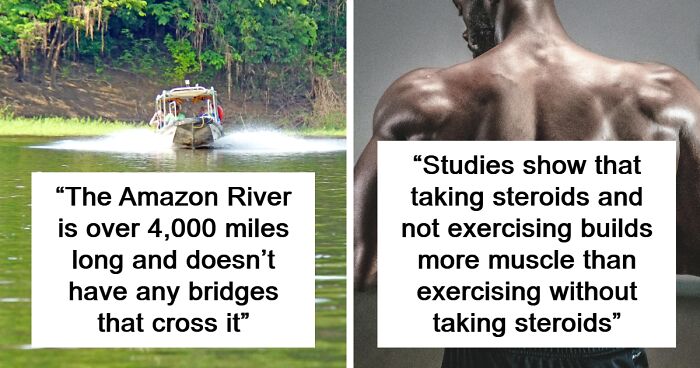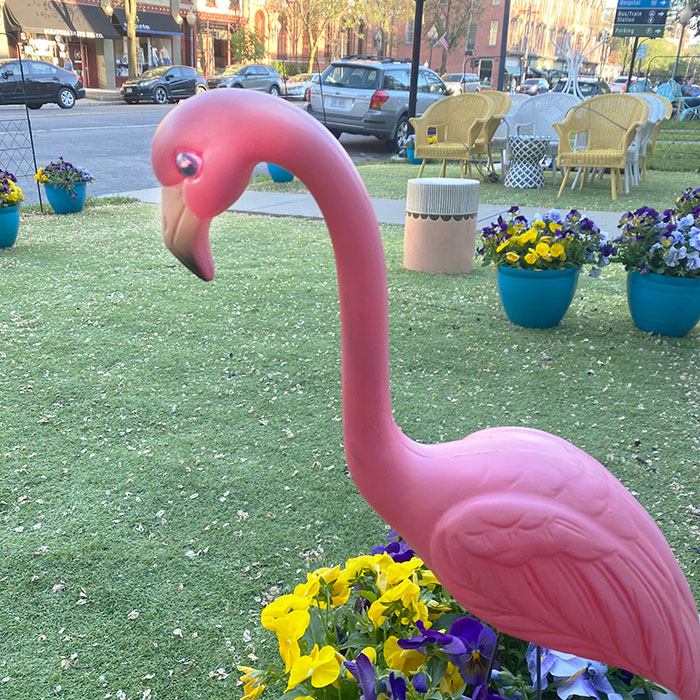It’s clear that one simply can’t know everything there is to know about, but that never stopped a curious mind from learning. Luckily, in the age of the internet, it has never been easier; with just a few clicks you can reach information about anything and everything that interests you.
You can also start a discussion with fellow netizens in a matter of a couple of clicks, too, and that’s exactly what the redditor u/Jdavies44 did. They were curious to learn about interesting facts few people knew about so they asked fellow redditors to share them, and they discussed some rather fascinating things. If you’re curious to read about them, too, wait no longer and scroll down to find their answers on the list below.
Below you will also find our interview with a behavioral expert, author of Cracking the Curiosity Code, Dr. Diane Hamilton, who was kind enough to answer a few of Bored Panda’s questions about how fun facts, curiosity, and learning intertwine.
This post may include affiliate links.
 You can actually use the turn signal on your car to warn other drivers that you're turning or changing lanes.
You can actually use the turn signal on your car to warn other drivers that you're turning or changing lanes.
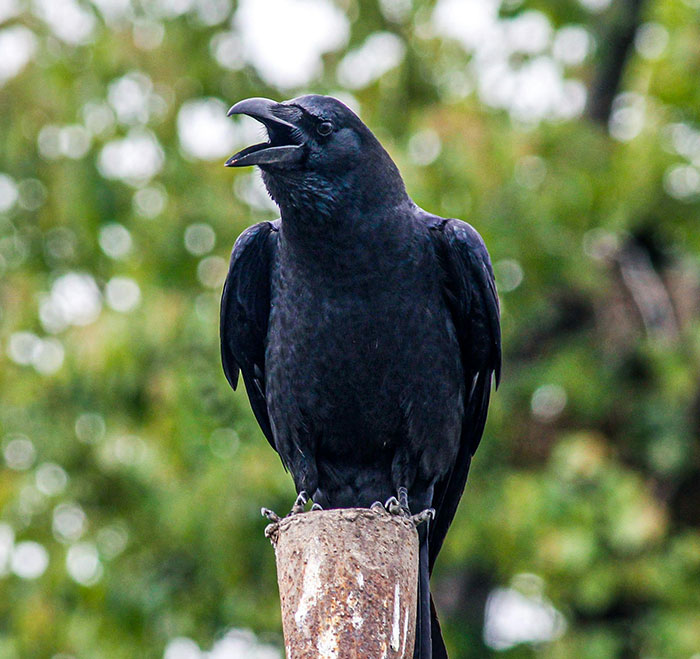 In mid-2000s Kagoshima, Japan, an alarming rise in power blackouts was traced back to crows who were building their nests on top of electric poles. The power company formed a “Crow Patrol” in order to seek and destroy the crows’ nests. The crows responsed by building thousands of dummy nests as decoys.
The war is ongoing.
In mid-2000s Kagoshima, Japan, an alarming rise in power blackouts was traced back to crows who were building their nests on top of electric poles. The power company formed a “Crow Patrol” in order to seek and destroy the crows’ nests. The crows responsed by building thousands of dummy nests as decoys.
The war is ongoing.
Well, I guess we all know who is going to win this war, don't mess with crows
 Not mind-blowing but worth sharing: There are more libraries in the US than there are Starbucks.
Not mind-blowing but worth sharing: There are more libraries in the US than there are Starbucks.
Seeking to delve deeper into how curiosity correlates with learning, Bored Panda got in touch with Dr. Diane Hamilton, who pointed out that such a link is found not only in humans.
“Curiosity, a fundamental aspect of learning and knowledge, is not exclusive to humans,” she said in a recent interview. “The Max Planck Institute introduced the term ‘curiosity gene’ based on researching a songbird. Imagine a bird that lacks curiosity. It may fly around a bush, searching for berries, but if it doesn't venture to explore other bushes, it will perish once the berries are depleted. Curiosity not only facilitates learning and knowledge, but also triggers a sense of reward in our brains, thanks to the release of dopamine.”
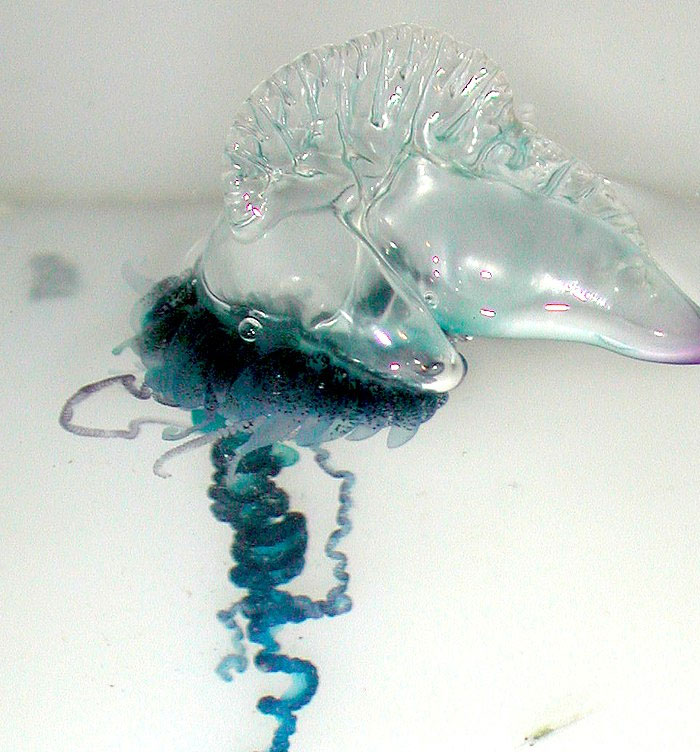 The weirdest animal in the world is the jellyfish called the Portuguese Man ‘o War (also called a bluebottle in Australia).
It gives birth via a process called “budding”, where a new animal just sort of pops off a random place on the jelly. But it doesn’t give birth to whole other jellyfish. It gives birth to many different types of animal-like creatures called “zooids”. They live on the bottom of the jelly, live independently from each other, but can’t survive without the others.
For instance, there’s a zooid that can digest fish, but can’t catch them. There’s a tentacle zooid that can catch fish, but can’t digest them. There are also several other zooids like that. Scientists have been scratching their heads about how to classify this creature, and are calling it a colony rather than an animal.
And that leads to an interesting question. What is the organism? Is it the zooid, because it moves around independently, but can’t really survive very long on its own? Or is it the whole jellyfish, in which case the zooids are a bit like organs, except for the fact that they might go for a walk occasionally?
And if you say that the whole jellyfish is the organism, maybe bees aren’t an organism either, but a beehive is?
That’s the problem with classification systems. As soon as you make one, along comes some weird example that makes you have to start again.
The weirdest animal in the world is the jellyfish called the Portuguese Man ‘o War (also called a bluebottle in Australia).
It gives birth via a process called “budding”, where a new animal just sort of pops off a random place on the jelly. But it doesn’t give birth to whole other jellyfish. It gives birth to many different types of animal-like creatures called “zooids”. They live on the bottom of the jelly, live independently from each other, but can’t survive without the others.
For instance, there’s a zooid that can digest fish, but can’t catch them. There’s a tentacle zooid that can catch fish, but can’t digest them. There are also several other zooids like that. Scientists have been scratching their heads about how to classify this creature, and are calling it a colony rather than an animal.
And that leads to an interesting question. What is the organism? Is it the zooid, because it moves around independently, but can’t really survive very long on its own? Or is it the whole jellyfish, in which case the zooids are a bit like organs, except for the fact that they might go for a walk occasionally?
And if you say that the whole jellyfish is the organism, maybe bees aren’t an organism either, but a beehive is?
That’s the problem with classification systems. As soon as you make one, along comes some weird example that makes you have to start again.
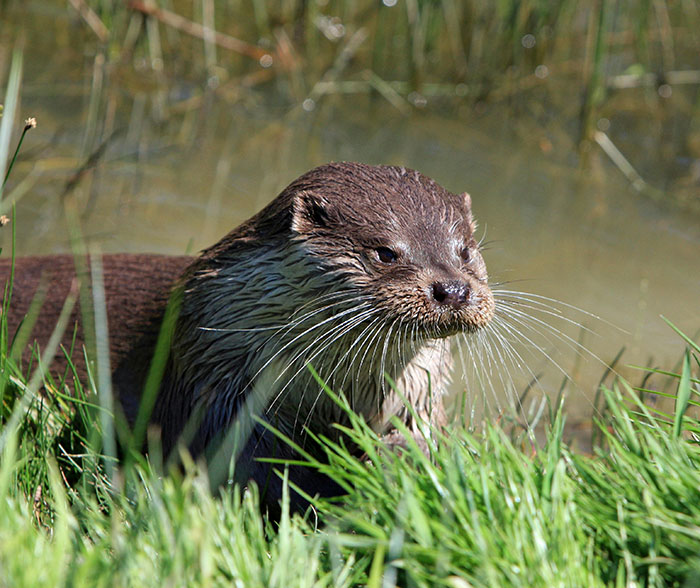 Otters have pouches in their sides they keep their favourite rocks in for smashing open clams. It's not just simians that use tools.
Otters have pouches in their sides they keep their favourite rocks in for smashing open clams. It's not just simians that use tools.
The author of Cracking the Curiosity Code noted that we’re not equally curious throughout our entire lives. “We are born with high levels of curiosity that peak around five and then diminish dramatically as we grow older,” she told Bored Panda.
“That same peak and drop happens to creativity as well. In his incredible TED talk about whether schools kill creativity, Sir Ken Robinson acknowledged that we have created an educational system that educates people out of their competencies. To fulfill 19th-century industrial job requirements, we created a hierarchy in education where math and science were at the top, and creative thinking was at the bottom. As education rewarded top-tiered skills like math and science more often, the system became about creating more academics, which in turn undervalued undergraduate degrees. This then caused more and more top-tiered skilled degrees to be made. Not surprisingly, such a system has harmed curiosity and creativity, which are fundamental for innovation.”
 Lake Superior. on that lake is an island called Isle Royale. on that island is a lake. on that lake is an island. on that island is a pond, and on that pond is boulder. that boulder is the largest island on the largest pond on the largest island on the largest lake on the largest island on the largest lake in the world (by surface area).
Lake Superior. on that lake is an island called Isle Royale. on that island is a lake. on that lake is an island. on that island is a pond, and on that pond is boulder. that boulder is the largest island on the largest pond on the largest island on the largest lake on the largest island on the largest lake in the world (by surface area).
 Switzerland, the country of neutrality, has unintentionally invaded its neighbor Liechtenstein 3-5 times…1968-2007.
3/4 times Liechtenstein didn’t know of it until Switzerland apologized.
The 1/4 was that one time Switzerland fired a missile and caused a forest fire, reparations were paid.
After one incident, the Liechtensteiners reportedly offered drinks to the Swiss soldiers.
A Liechtenstein spokesman said, "It's not like they invaded with attack helicopters".
Switzerland, the country of neutrality, has unintentionally invaded its neighbor Liechtenstein 3-5 times…1968-2007.
3/4 times Liechtenstein didn’t know of it until Switzerland apologized.
The 1/4 was that one time Switzerland fired a missile and caused a forest fire, reparations were paid.
After one incident, the Liechtensteiners reportedly offered drinks to the Swiss soldiers.
A Liechtenstein spokesman said, "It's not like they invaded with attack helicopters".
"Invaded". Liechtenstein is really small. You can walk through it is an hour. The invasion was a soldier accidentally walking there or something.
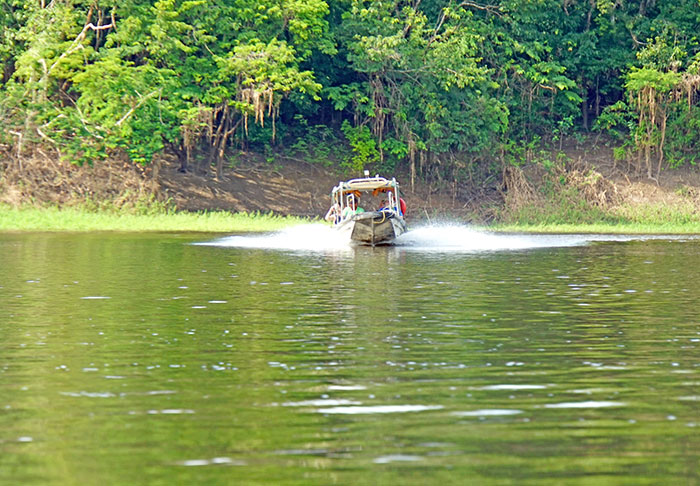 The Amazon River is over 4,000 miles long and doesn't have any bridges that cross it.
The Amazon River is over 4,000 miles long and doesn't have any bridges that cross it.
So 6500 km... That's the distance between Paris and New Delhi. Quite amazing.
“To better understand this impact, look at its effect on children,” Dr. Hamilton continued. “As part of his work with NASA, Professor George Land created an assessment to test for creativity and studied children to view how their levels changed. He found that 98% of children were creative geniuses at age five. By age ten, that number fell to 30%. By age 15, that figure dropped to 12%; by age 31, only 2% were creative geniuses.
“Curiosity is important throughout all stages of our existence. Unfortunately, when our levels drop in adulthood, that can limit us and lead us into jobs we don't love or choices that feel safe rather than rewarding.”
 The earliest known public museum dates to circa 530 BCE and it had archeological Mesopotamian artifacts on display.
The earliest known public museum dates to circa 530 BCE and it had archeological Mesopotamian artifacts on display.
I can only imagine what kind of fossil and artifact museums we would have nowadays if we had truly realized their worth back then. So many things destroyed in history..
 In Turkey (the country) turkey meat is called "Hindi" (India).
In Turkey (the country) turkey meat is called "Hindi" (India).
And in Denmark we call "danish" (the pastry) for "wienerbrød" (bread fom Vienna 😉
“Reading about interesting things is great for our curiosity,” the expert said, discussing how browsing random fascinating facts like the ones on this list can affect one’s curiosity. “Sometimes, we don't know what we don't know, and reading a fun fact can spark the desire to dig deeper. It makes us want to learn more.”
 Shirley Temple led an extremely successful life as a diplomat after her childhood acting career. She was present in Czechoslovakia when the Soviet's cracked down on them (as in, she seen people killed). Later after the fall of the USSR, she was the head of establishing diplomatic relations between the US and Czechoslovakia.
Shirley Temple led an extremely successful life as a diplomat after her childhood acting career. She was present in Czechoslovakia when the Soviet's cracked down on them (as in, she seen people killed). Later after the fall of the USSR, she was the head of establishing diplomatic relations between the US and Czechoslovakia.
 Trees communicate.
Trees communicate.
Trees communicate in at least two ways. One is by releasing chemicals (terpenes) into the air that other trees can smell. A second way is by touching roots, and sending chemical signals through the root contact point. There may be a third way, direct contact between branches.
 You have a holey face. Your sinuses are big empty cavities in your skull. The maxillary sinus is the biggest. It’s just under your eye (under the cheek bones) and I swear you could fit 3 grapes in each one.
Except for when they are full of snot.
You have a holey face. Your sinuses are big empty cavities in your skull. The maxillary sinus is the biggest. It’s just under your eye (under the cheek bones) and I swear you could fit 3 grapes in each one.
Except for when they are full of snot.
Please excuse me while I go see if I can shove 3 grapes up my maxillary sinus hole. Worst case scenario, I fail the objective. Best case scenario, I get to eat grapes, the ones I didn't stick up my nose hole of course. :-) Lol!
According to Dr. Hamilton, curiosity is the spark to all that organizations want to achieve regarding innovation, engagement, and everything that makes people productive. “When we learn, we find out where we are the best fit in our jobs, and that aligns us with better careers.
“The real trick is determining what inhibits our curiosity,” she said, suggesting that the Curiosity Code Index assessment is a great way to do that. “Like DiSC or other personality tests, it only takes around 10 minutes to find out the things that have held us back from learning and exploring. More importantly, it offers insights into overcoming those factors that have stopped us from developing our curiosity.”
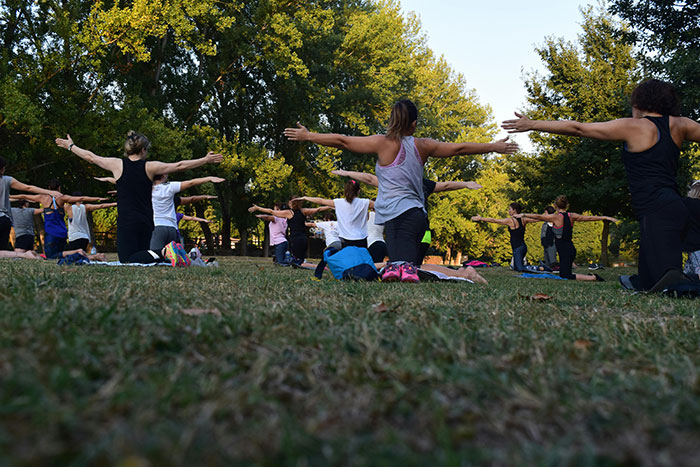 Modern postural yoga-- the type and style predominantly practiced in Western countries-- is about 100 years old. It was invented in India by Indians and is derived mostly from British calisthenics and Swedish gymnastics. It was *specifically marketed to affluent westerners by Indians* as a superior form of spiritual and physical exercise. It's working as designed for its target market.
Modern postural yoga-- the type and style predominantly practiced in Western countries-- is about 100 years old. It was invented in India by Indians and is derived mostly from British calisthenics and Swedish gymnastics. It was *specifically marketed to affluent westerners by Indians* as a superior form of spiritual and physical exercise. It's working as designed for its target market.
Asanas, the physical postures or “exercise” part of yoga, have been around for a very long time. Specific sequences and the naming of these postures is more recent, but still based on a practice that prexists tue western version.
 Chicago "The Windy City" is known for political wind not regular wind.
Chicago "The Windy City" is known for political wind not regular wind.
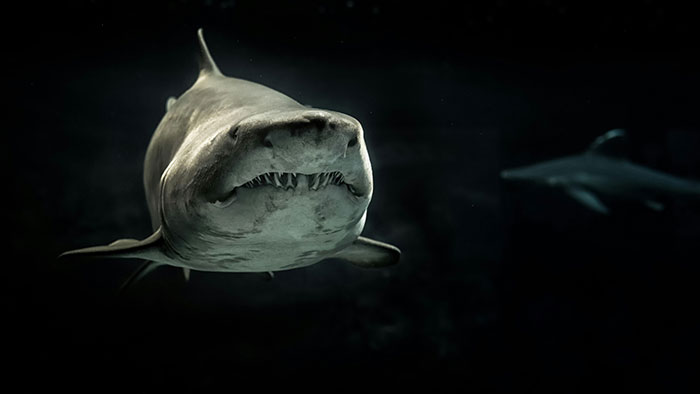 Sharks predate trees.
Sharks predate trees.
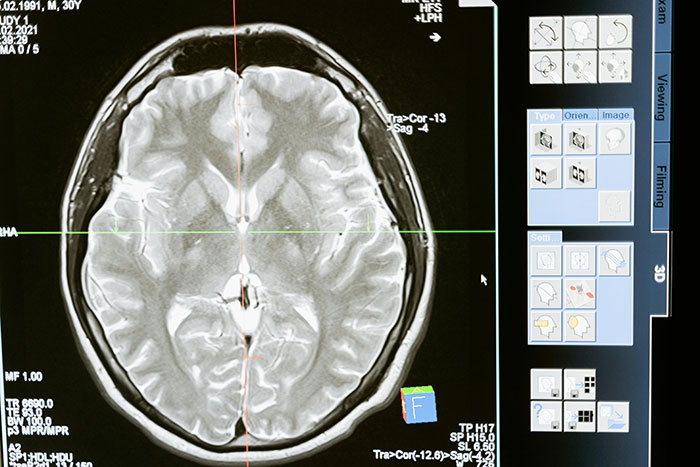 The brain is the only organ that named itself.
The brain is the only organ that named itself.
Less impressive when you realize it also named all the other organs too.
 When you put a bumper sticker or decal on, spray a couple sprays of diluted soapy water or simple green on the surface of the car first, then put the sticker down…. And you can slide it around until it’s even and centered. Use a credit card to squeegee the moisture out from underneath, pat dry, and leave it alone. It’ll adhere as it dries.
No more crooked stickers.
When you put a bumper sticker or decal on, spray a couple sprays of diluted soapy water or simple green on the surface of the car first, then put the sticker down…. And you can slide it around until it’s even and centered. Use a credit card to squeegee the moisture out from underneath, pat dry, and leave it alone. It’ll adhere as it dries.
No more crooked stickers.
 Solar eclipses are a completely random quirk of arbitrary factors.
The sun is roughly 400x bigger than the moon. The sun is also roughly 400x further away from earth than the moon.
Nothing created or enforces that ratio. It’s just a random happenstance that from our view, on the surface of this planet, the sun and moon seem roughly the same size, and can perfectly overlap.
Solar eclipses are a completely random quirk of arbitrary factors.
The sun is roughly 400x bigger than the moon. The sun is also roughly 400x further away from earth than the moon.
Nothing created or enforces that ratio. It’s just a random happenstance that from our view, on the surface of this planet, the sun and moon seem roughly the same size, and can perfectly overlap.
 The chainsaw was invented as a tool to aid in childbirth. Rotating blades to get through the pelvic bone…..
The chainsaw was invented as a tool to aid in childbirth. Rotating blades to get through the pelvic bone…..
Look up Symphysiotomy on Wikipedia and the feel free to be horrified that people actually did that.
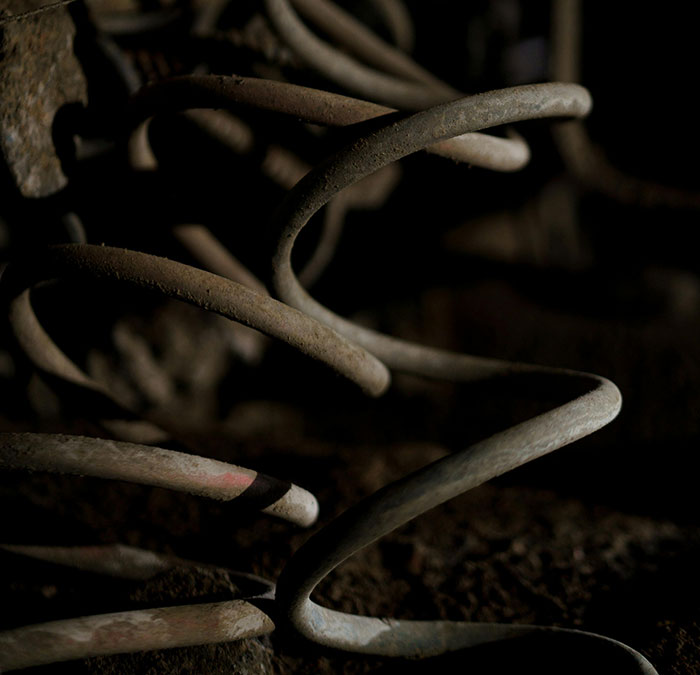 A compressed spring weighs more than when the same spring is at rest. The stored potential energy of the compressed spring makes it heavier.
Really puts e = mc^2 into perspective.
A compressed spring weighs more than when the same spring is at rest. The stored potential energy of the compressed spring makes it heavier.
Really puts e = mc^2 into perspective.
So if a weeping angel touched a spring they could live off it and not need to send humans into the past? Where's the Doctor? We should inform him forthwith!
 Each (human) cell in your body has over 2m (6ft) of DNA in it.
Each (human) cell in your body has over 2m (6ft) of DNA in it.
 The emotion you feel when realizing, that the people around you are complex human beings like yourself with emotions, memories and "someone inside there", is called Sonder.
The emotion you feel when realizing, that the people around you are complex human beings like yourself with emotions, memories and "someone inside there", is called Sonder.
 People aren’t persuaded to change their views with facts and this his been studied and proven.
ETA there’s a YouTube video on the BrainCraft channel about this. It was put up in the last day or so if anyone is curious..
People aren’t persuaded to change their views with facts and this his been studied and proven.
ETA there’s a YouTube video on the BrainCraft channel about this. It was put up in the last day or so if anyone is curious..
It has been shown that the best way to try and change someone's mind is to empathise with their reason for feeling the way they do. So, for example, with a couple I know who turned out to be antivaxxers (I had no idea before the pandemic!), I sympathised with their underlying fears (loss of control, excessive fear for their child's health - understandable since they had nearly lost him at birth) and then changed the subject. When I brought up my own stance on vaccines later, they were able to listen. Only by doing that and giving time for the information to sink in where they are not under scrutiny were they able to come around to vaccinating their kid against other childhood illnesses (admittedly not Covid).
 Nike has warranties on their shoes. If yours remains in the tread life and within the warranty date, you just make a claim and they’ll give you a voucher for new shoes and paid postage to send the old ones back.
Target will also take any Cat and Jack clothes back for an exchange as your kids grow.
Brake pads only need to be bought once for the life of a car. They are then warranty exchanged as you wear them out.
Clearly, I’m a dad.
Nike has warranties on their shoes. If yours remains in the tread life and within the warranty date, you just make a claim and they’ll give you a voucher for new shoes and paid postage to send the old ones back.
Target will also take any Cat and Jack clothes back for an exchange as your kids grow.
Brake pads only need to be bought once for the life of a car. They are then warranty exchanged as you wear them out.
Clearly, I’m a dad.
At least one of these - the brake pads, is completely untrue. Anyone getting "free" replacements has signed up for a lifetime servicing contract or similar. They're treated as 'consumables', just like wiper blades and tyres, and indeed many other components including some engine parts that have a defined life span.
 Most of the time, the closest planet to Earth is Mercury. Actually, most of the time Mercury is the closest planet to all of the other planets, too. Even Pluto.
Most of the time, the closest planet to Earth is Mercury. Actually, most of the time Mercury is the closest planet to all of the other planets, too. Even Pluto.
If you don't believe it, try a quick experiment. Take four cookies (or other small objects) and line them up on a table in front of you, perpendicular to your body. The closest cookie represents Earth. The next cookie is Venus, then Mercury, then the farthest cookie is the Sun. Obviously, Venus is closest to Earth in this configuration.
Now move Venus and Mercury in their "orbits" 90 degrees to the right (or left, it doesn't matter) of the Sun. Measure the distance from Earth to Mercury and Venus. Mercury is now closest to Earth.
Move Venus and Mercury another 90 degrees and Mercury is obviously closer, even without measuring, but measure it if you want to.
Move Venus and Mercury another 90 degrees and you'll have the mirror image of the first 90 degrees configuration. Measure it if you want to. Mercury is still closest to Earth.
You have to move Venus and Mercury closer to the Earth before you get to a point where they are the same distance from Earth. It works like this for all the planets.
Venus and Mercury and don't revolve together like this in real life. They revolve at different speeds. But over thousands or millions of years, it all averages out.
 You only need 39 digits of pi to calculate the radius of the universe to the width of a single atom.
It sounds BS but it's true. For the average engineer or scientist you'll never need more than 3.141.
You only need 39 digits of pi to calculate the radius of the universe to the width of a single atom.
It sounds BS but it's true. For the average engineer or scientist you'll never need more than 3.141.
 Studies show that taking steroids and not exercising builds more muscle than exercising without taking steroids. The percentage of obese people who get to and maintain a healthy weight is statistically lower than the percentage of people who survive a gunshot to the head.
Studies show that taking steroids and not exercising builds more muscle than exercising without taking steroids. The percentage of obese people who get to and maintain a healthy weight is statistically lower than the percentage of people who survive a gunshot to the head.
This sounds like "facts" from a questionionable nutritional supplement site.
 A long a*s time time ago a dude in Egypt paid a guy to walk 8,000 kilometers to a tower to measure the length of it’s shadow & that’s how we found out the earth was round.
Edit: 800km I stand corrected. Still, quite the trip. I hope he paid well.
A long a*s time time ago a dude in Egypt paid a guy to walk 8,000 kilometers to a tower to measure the length of it’s shadow & that’s how we found out the earth was round.
Edit: 800km I stand corrected. Still, quite the trip. I hope he paid well.
 Johnny Appleseed is a legendary character and we know of him because he spread alcohol through the frontier. He was planting apples for alcohol and was welcomed by so many in their homes because he brought a jug of cider to every home he visited.
Johnny Appleseed is a legendary character and we know of him because he spread alcohol through the frontier. He was planting apples for alcohol and was welcomed by so many in their homes because he brought a jug of cider to every home he visited.
 In water, sound can project downwards, bend back up, hit the surface from below, reflect, go down again, and bend back towards the surface. Multiple times.
In water, sound can project downwards, bend back up, hit the surface from below, reflect, go down again, and bend back towards the surface. Multiple times.
There are craters on the poles of mercury that are SO DEEP that rays of light from the sun have never directly struck their bottoms, and scientists have found evidence of water ice at the bottom of these craters.
All of the gold discovered thus far would fit in a cube that is 23 meters wide on every side.
And a hecking lot of it comes from one place on Earth: the Witwatersrand in South Africa.
People with aphakia can see ultraviolet light.
"Aphakia is a condition in which you're missing the lens of one or both of your eyes.” When associated with cataract surgery in adults, this is known as Pseudophakia.
Felix Baumgartner doesn't have the record for the highest altitude free jump. He did jump from 128k feet (39 km) in 2012, and very publicly. But then Alan Eustace with almost no fanfare jumped from 135k feet (41.4 km) in 2014.
TIL. Eustace did the jump at 57 years old. Former Senior Vice President of Google.
In 1944, 9 American airmen were shot down over the island Chichijima. 8 were captured by Japanese troops and executed, at least 4 were cannibalized by Japanese officers. Reports vary if it was for reasons of starvation or ritual. One airman evaded capture and was eventually rescued. 44 years later he was elected President of the United States. Google "The Chichijima incident" for more info.
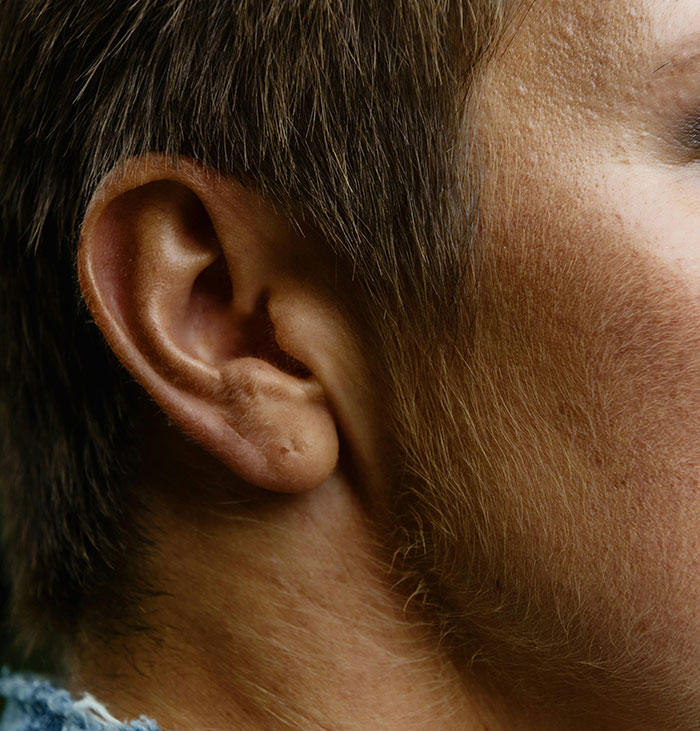 It takes only 7 pounds of force to rip off a human ear.
It takes only 7 pounds of force to rip off a human ear.
 Everything you see around you is literally created by the interaction of electrons and photons (except radiation and gravity.)
Three basic actions create it all:
1) A photon goes from place to place.
2) An electron goes from place to place.
3) An electron emits or absorbs a photon.
Literally that's it.
Everything you see around you is literally created by the interaction of electrons and photons (except radiation and gravity.)
Three basic actions create it all:
1) A photon goes from place to place.
2) An electron goes from place to place.
3) An electron emits or absorbs a photon.
Literally that's it.
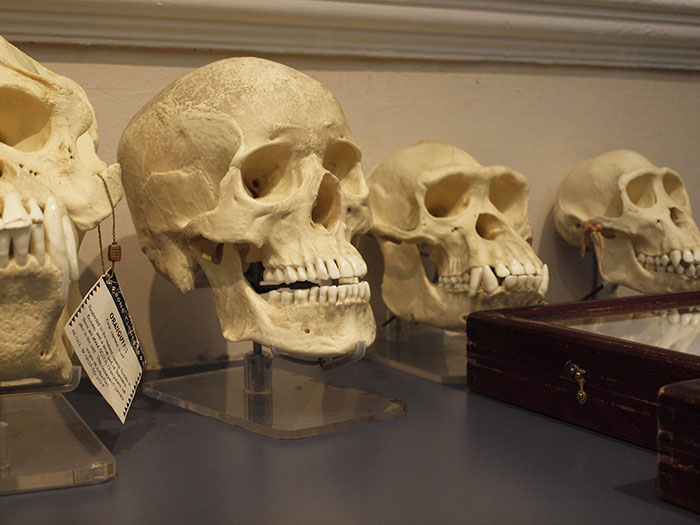 People used to use hollowed human skulls for cups and bowls in ancient England.
People used to use hollowed human skulls for cups and bowls in ancient England.
If you spell out every whole number starting at 0 and ending at 999,999,999, you will not use the letter “B.”.
All of the planets in our solar system, if laid side by side, would fit between the earth and the moon.
 In Uranus it rains giant diamonds.
In Uranus it rains giant diamonds.
The Earth's rotation is speeding up and that means our days are getting slightly shorter. In a decade they will have to make clocks a second shorter.
It has to be the other way around, doesn't it? The Earth's rotation is slowing down due to the transfer of tidal energy from the Earth to the Moon. We've recently stopped with the leap seconds because they are not needed any more.
That if you enter on a freeway the Wrong Way at night, all the reflectors you see on the freeway will reflect as Red. Hopefully the driver can figure out something is wrong and at least pull over.
A woman was watching the news on TV one night and saw a live report that someone was driving the wrong direction on the freeway. She knew her husband was driving through that area that night, so she became alarmed and called him. She said, "Some idiot is driving the wrong way on the freeway!" He answered, "THEY ALL ARE!!!"
When dinosaurs were walking around, our planet was on the opposite side of the galaxy.
And that changed when they stopped walking around and invented the skateboard?
The average life expectancy figure accounts for deaths at all ages. The longer you live, the higher your overall probability of exceeding that number. Also, the probability of someone dying in their first year of life is similar to a person dying at any given age in their 60s.
Mycelium, the organism that bears mushrooms, is neither flora (plants) nor fauna (animal), but rather fungi. So, they are neither animal nor plant.
If everyone on earth was standing shoulder to shoulder, front to back, they'd all fit comfortably within the tiny state of Rhode Island.
 If your intestines are in the way during abdominal surgery, standard procedure is to scoop them out and dump them in a bowl for the duration, then basically pour them back in when you're done. As long as you don't pull enough to create an actual knot, the guts will wiggle themselves back into exactly the same shape and configuration they had before being disturbed.
If your intestines are in the way during abdominal surgery, standard procedure is to scoop them out and dump them in a bowl for the duration, then basically pour them back in when you're done. As long as you don't pull enough to create an actual knot, the guts will wiggle themselves back into exactly the same shape and configuration they had before being disturbed.
The carbon dioxide laser is the most popular industrial laser in the world. You can hold whatever opinion you want on climate change, but carbon dioxide is so good at making heat it’s used to generate laser beams.
Cleopatra exists closer to us in time than she does to building of the Great Pyramid.
It seems this fact is presented in every single "facts people don't know" post on BP
This would be a great article if so many of these "facts" weren't bunkum.
"What are incredible facts that Bored Pandas do know about?" (1) Most of the facts in the BP list like this are false (2) Most of the facts are repeated over and over (3) Most of the facts are not incredible, they are just lame.
This would be a great article if so many of these "facts" weren't bunkum.
"What are incredible facts that Bored Pandas do know about?" (1) Most of the facts in the BP list like this are false (2) Most of the facts are repeated over and over (3) Most of the facts are not incredible, they are just lame.

 Dark Mode
Dark Mode 

 No fees, cancel anytime
No fees, cancel anytime 






